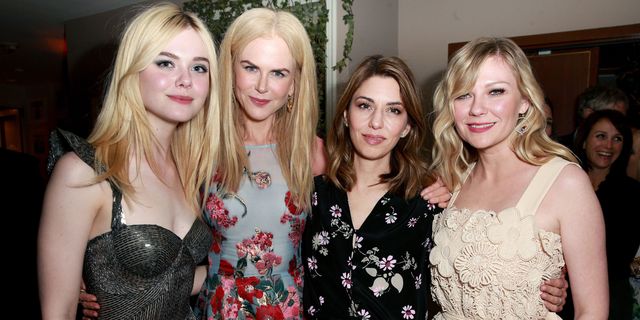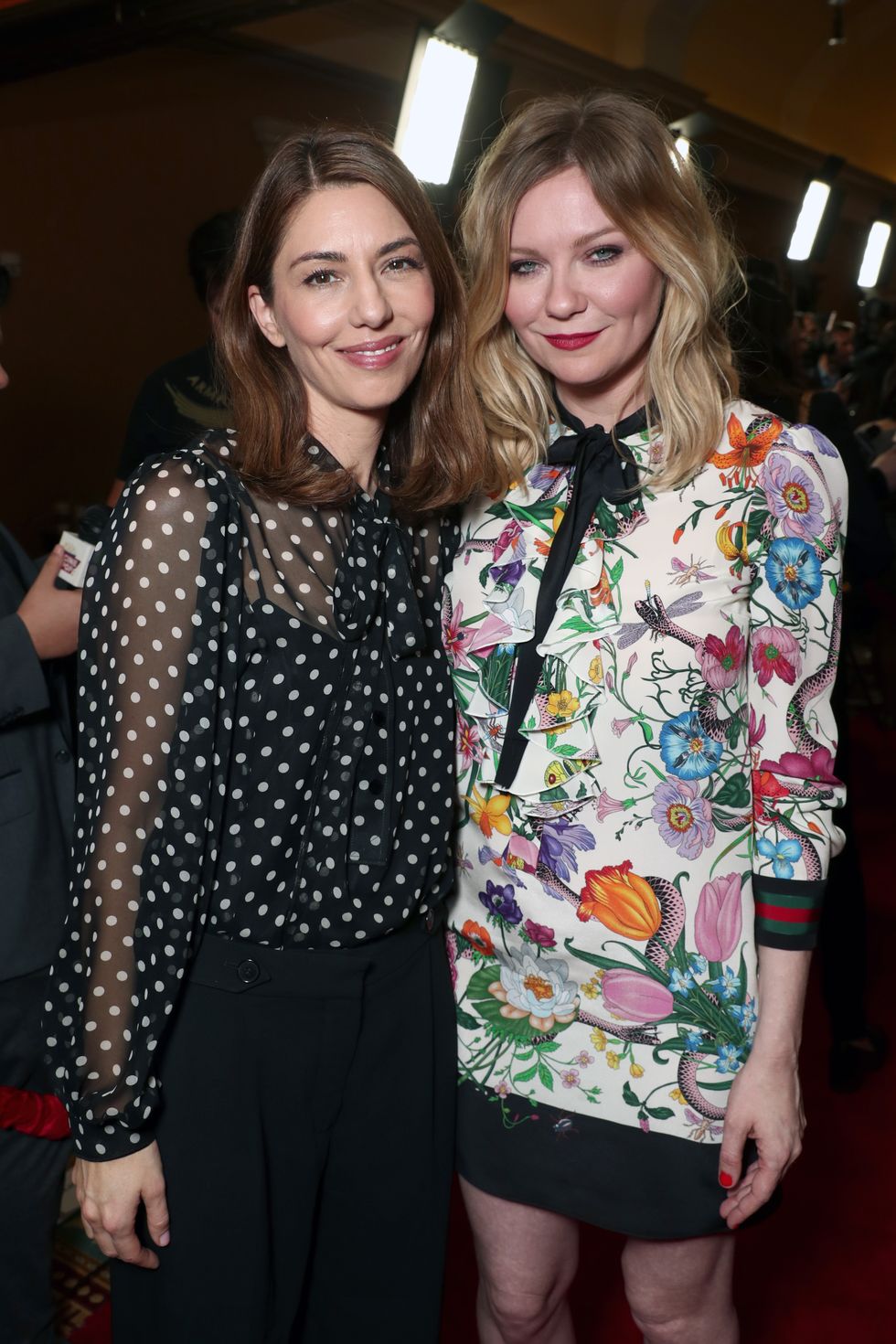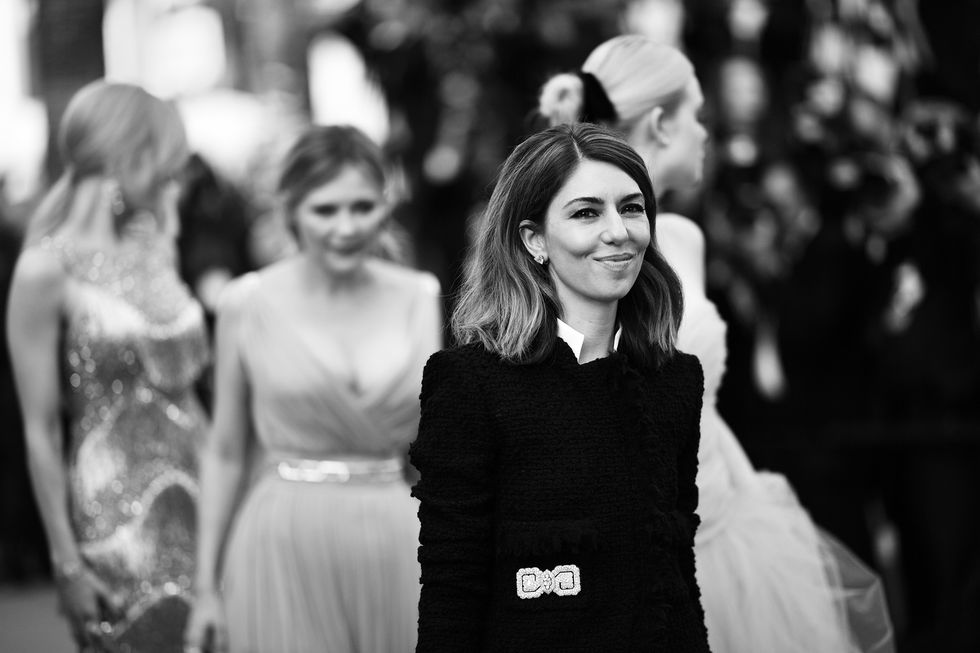Sofia Coppola is the famous film-maker behind dreamy, female-focussed films such as The Virgin Suicides and Marie Antoinette.
Continuing on similar themes of her other movies (sheltered, repressed women in an insular setting), The Beguiled (a remake of both a book and a film) follows a girls school in the South during the civil war who take in a soldier from the Northern army.
'I really thought it was interesting because it was a group of women all living together, all different ages with different stages of maturity, and how they interact,' Coppola recently told BuzzFeed News. 'It's a group of women kind of isolated in the world.'
In a recent interview with GQ, however, it was revealed she didn't know what the Beschel test was (a tool to surmise how 'feminist' a film is by asking whether the fiction features at least two named women who talk to each other about something other than a man).
The interview read:
I loved The Beguiled. Would you say this is the rare feminist film that struggles to pass the Bechdel test? The what test? The Bechdel test. I've never heard of that. What's that? It's a test to see if two or more women in a movie talk about something other than a man. Oh, I guess I've never studied film. That's so funny, but there are a lot of women talking about a man in this.
Coppola's interest in aesthetics and white female's stories has lead some accusing her of being fairly politically ignorant in her films.
She famously eschewed the political class warfare that was the backdrop to the real Marie Antoinette's life in her film of the same name, although, to be fair, ignorance and naivety was arguably the point of that film.
Bling Ring was the first film where Coppola apparently white-washed her characters, since the real bling ring set (a group of teenagers who broke into various celebrities houses and stole from them) included a latina immigrant called Diana Tamayo, and her character was suspiciously absent from the film.
Now, some have noted that The Beguiled leaves out any mention of slavery - which is arguably the reason why the civil war they find themselves in is happening. Also in both the book and the original film, not only is Kirsten Dunst's character mixed-race, but there is an entire other character left out, the women's slave (called Mattie in the book and Hallie in the film).
Coppola has admitted she removed a slave character's plot because she wanted to concentrate on the gender dynamics of the story, 'and not the racial ones'.
She told Buzzfeed: 'I didn't want to brush over such an important topic in a light way, young girls watch my films and this was not the depiction of an African-American character I would want to show them.'
BuzzFeed pressed the director about Hallie's erasure and she said,
I feel like you can't show everyone's perspective in a story. I was really focused on just this one group of women who were really isolated and weren't prepared. A lot of slaves had left at that time, so they were really— that emphasised that they were cut off from the world. [Hallie's] story's a really interesting story, but it's a whole other story, so I was really focused on these women.
Moving forward she told the news site: 'I would love to have a more racially diverse cast whenever I can. It didn't work for this story, but of course I'm very open to stories about many different experiences and points of view.'
Unfortunately for Coppola, plenty of people on Twitter aren't satisfied with her response and have aired their grievances online:
Hopefully Coppola will get a chance to tell a story that includes more racially diverse experiences and points of view. She's a beautiful film-maker and we're sure she would be able to do the many narratives justice.
Daisy Murray is the Digital Fashion Editor at ELLE UK, spotlighting emerging designers, sustainable shopping, and celebrity style. Since joining in 2016 as an editorial intern, Daisy has run the gamut of fashion journalism - interviewing Molly Goddard backstage at London Fashion Week, investigating the power of androgynous dressing and celebrating the joys of vintage shopping.















